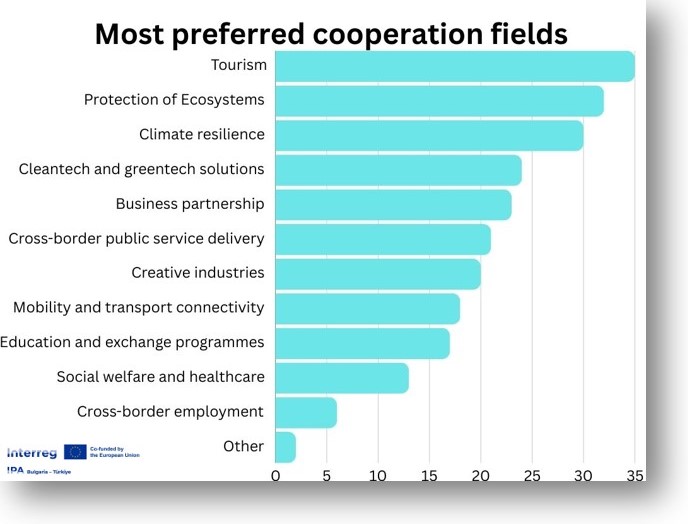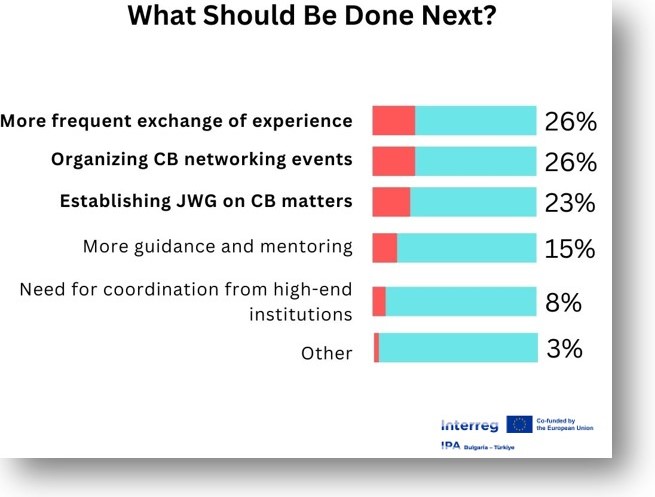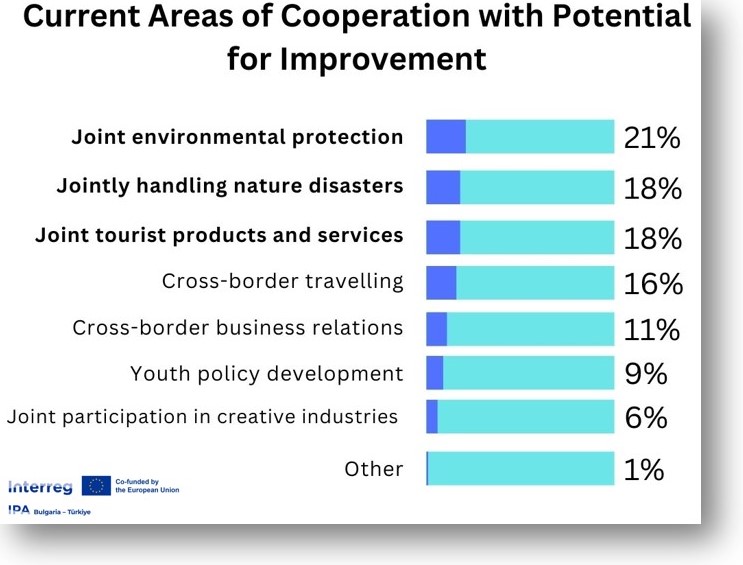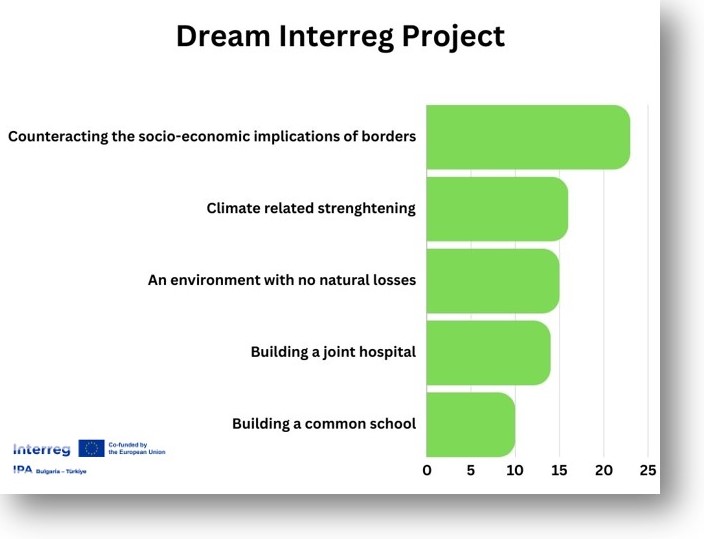Stakeholders of the Bulgaria-Türkiye programme topped tourism as the main priority for the next programming period. Results are harvested during a post-2027 consultation in response to DG Regio’s call for Interreg programs to engage the wider public in setting priorities for the next period and gather new perspectives on how to (re)structure Interreg more effectively to strengthen EU territorial cooperation.
Tourism is followed by environmental protection, climate resilience and business cooperation with a focus on cleantech and greentech solutions. Respondents identified limited citizen engagement in policy-making, weak institutional cooperation and inadequate shared public services as key areas needing improvement. Additionally, challenges like differing sectoral legislations, limited understanding of cross-border impact, insufficient funding and excessive controls were highlighted as main barriers to more active engagement. Recommended actions for enhancing Interreg cooperation and foster stronger cross-border relationships include increasing the frequency of experience-sharing across various topics, organizing cross-border networking events and creating joint working groups.
Stakeholders are particularly interested in enhancing their participation. They expressed a desire for greater simplification and increased opportunities for interaction. This feedback indicates a strong inclination towards fostering a more inclusive and engaging environment in future initiatives, which could potentially extend across different programmes. Additionally, respondents call for a clear demand for cross-border infrastructure that can be equally utilized by people and institutions from both sides of the border. This underscores the essential role of infrastructure in the cross-border region.
When asked "What would be the cross-border cooperation project of your dreams?", the majority expressed a preference for projects that address the socio-economic implications of borders. By prioritizing this intervention area, people are signaling a desire for initiatives that could bridge these divides, enhance cross-border interactions and stimulate shared economic growth. The second most popular choice—projects on environmental protection—highlights the growing recognition of the environmental challenges facing both countries, such as climate change, nature disasters and biodiversity loss.
Main recommendations for post-2027, based on the collected feedback, aim to create a more inclusive, strategic and impactful approach:
Thematic orientation: tourism and people-to-people actions, business opportunities, climate resilience and environmental protection, collaboration in youth and education;
Capacity building for stakeholders: strengthen the capabilities of local and regional stakeholders to better align their priorities with the needs of citizens. This can involve training on participatory methods, strategic planning and integrating public feedback into project development to ensure that initiatives reflect community priorities;
Promote socio-economic projects: focus on reducing barriers to economic opportunities and fostering job creation. This can include supporting SMEs, promoting skills development and creating sustainable value chains that benefit the cross-border region;
Environmentally focused initiatives: support projects that protect the environment, as this was also a major area of interest among stakeholders and citizens. Investments in sustainable practices, climate-change adaptation, and environment-related infrastructure could strengthen cross-border collaboration and address shared ecological concerns;
Simplification of application and reporting processes: facilitate faster project application, assessment and implementation;
Diversified partnerships: encourage partnerships that include a diverse range of stakeholders and foster cross-programme cooperation.
| Attachment | Size |
|---|---|
| Harvesting report BG-TR.pdf | 1.63 MB |



